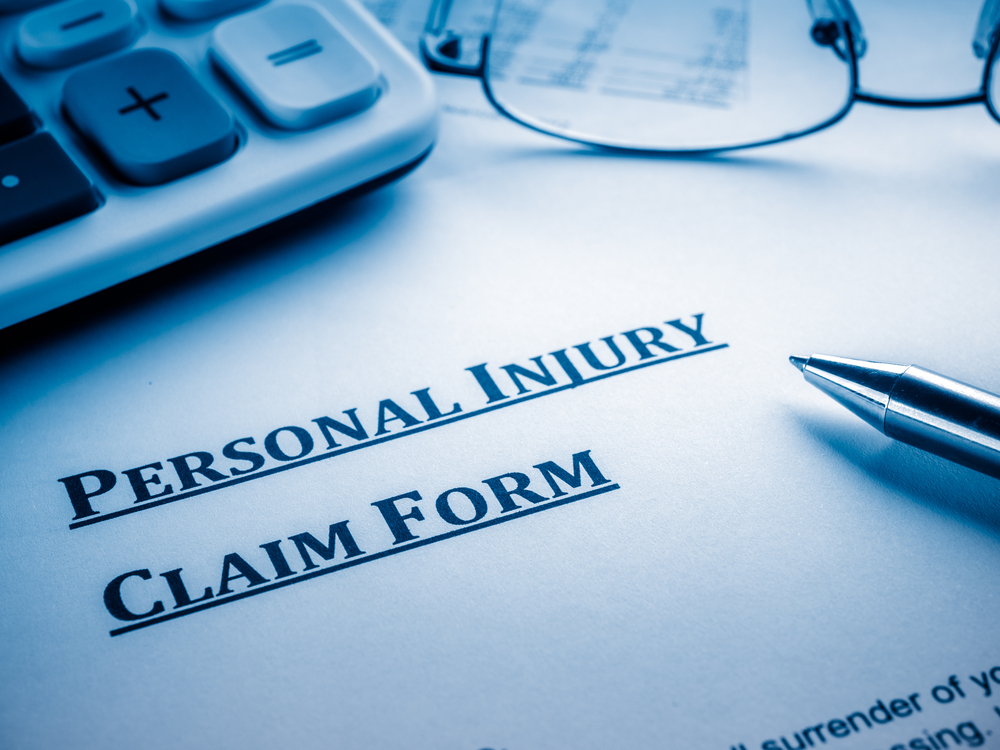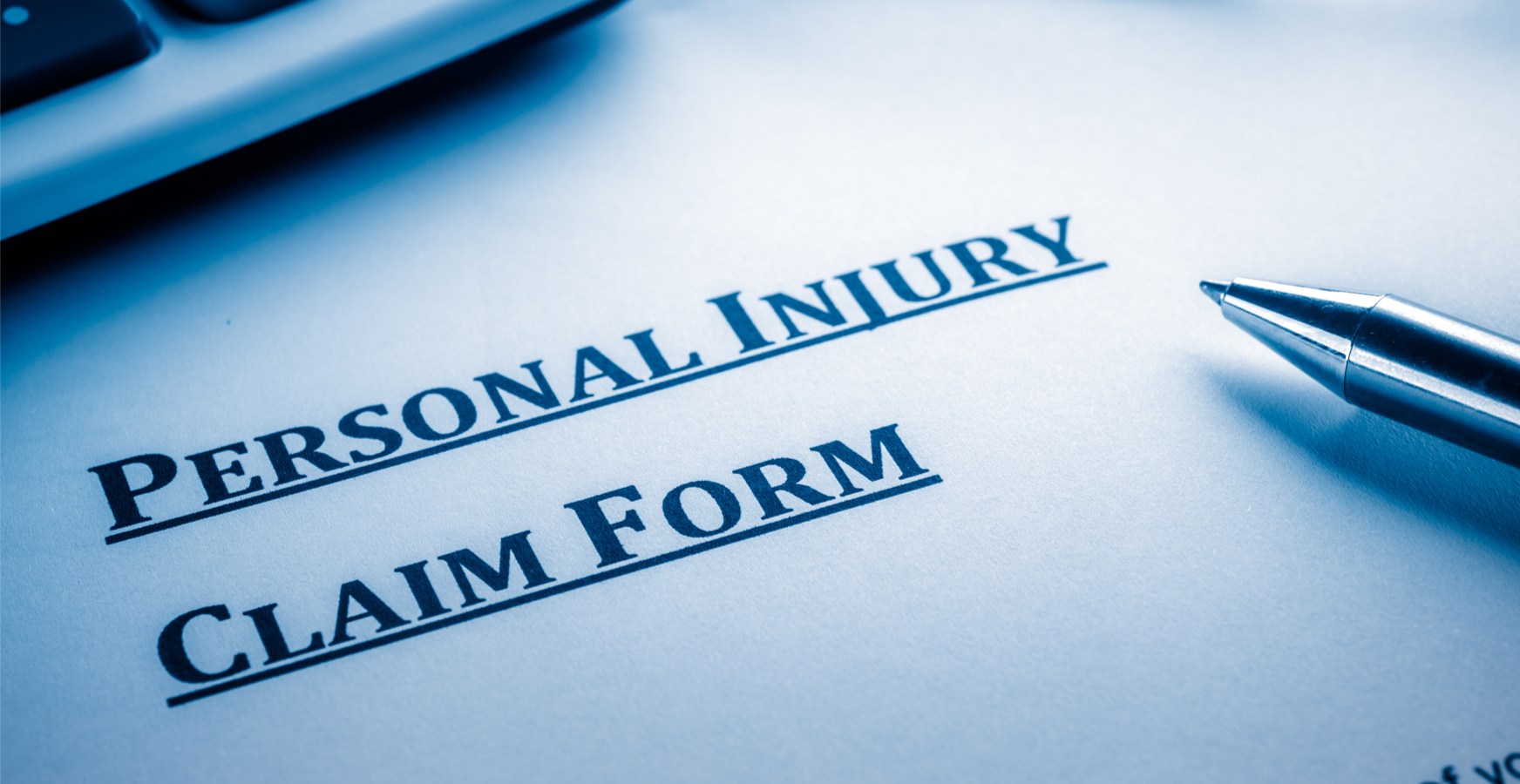Eleven years ago, I suffered an injury which was to change my life. I continue to live with persistent pain, predominantly neuropathic pain. I have worked hard to retain my independence and manage my pain so that I can live well with pain. I have been supported by a number of clinicians, including my GP, rheumatologist, spinal surgeons and physiotherapists. I have also been supported by two pain clinics.
Nearly two years after my injury, following advice, I lodged a personal injury claim, which was finalised just over two and a half years later. I understand this length of time to complete a personal injury claim is not untypical, whether the claim is successful or not. I had no idea when I took out the claim that it would be such a lengthy process, I doubt many people do. It was a long, but to be honest not too dreadful a process.
In the first half of this post I hope to tell you a little about the personal injury claim process as I experienced it, including how the process impacted on my healthcare.
In the second half of the post I raise some questions that healthcare providers and individual clinicians might wish to consider.
First of all, I need to say that my views in this post are just that, MY views. Obviously, they are based on lived experience, but others will have different experience to mine, and different views.
I hope my thoughts may be helpful, but that is all they are, MY thoughts.
I am not a lawyer, I am not a health care professional and I have no medical training.
My Personal Injury Claim Experience

I was supported with my personal injury claim by a large firm of solicitors that had a specialist personal injury claim team. I was able to get to know my legal representative quite well, and obviously they got to know me also. At no stage did I feel that they pressured me to ‘over-egg’ my claim. I felt my claim was handled very professionally. I believe I was honest throughout my claim and I do not believe that I ‘over-egged’ my injuries or situation.
During my personal injury claim journey I was aware through reading articles on the Internet that some people think that healthcare is less effective when undergoing personal injury litigation. Some people think that as a patient you might be swayed when making healthcare decisions by wondering what decision might help your case the best, and some people think that you might not want to put sufficient effort into improving your health as doing so might work against your financial claim.
This was of concern to me, and throughout my litigation process I tried to be conscious of this. I tried to make sure that any decisions I needed to make did not have my personal injury claim as a significant factor. I can’t say whether it was ever a subconscious factor or not, but I tried to ensure I was as vigilant as I could be to minimise any effect.
I was very clear with myself that my health and rehabilitation was more important to me than any financial gain from a personal injury claim! I accept this may not be the case for everyone, but I’m rather guessing it will be for most. I certainly don’t think assumptions should be made about a patient’s desire and ability to improve their health whilst in a litigation process.
Retaining my health as the priority was particularly important for me as I needed to make decisions about whether to have a spinal cord stimulator fitted, which is an invasive procedure and fundamentally life changing. I didn’t know whether having the stimulator fitted was likely to be of benefit to my personal injury claim, or perhaps lessen it, but that was not my concern, my health was.
My final decision to have the stimulator implanted was made around a year after my personal injury claim finished, but the start of the long assessment process occurred whilst my claim was ongoing. Although I made the decision to have the stimulator implanted after the personal injury claim was concluded, I strongly believe that I was very capable of making an equally sound decision whilst my litigation was ongoing.
The litigation did not fundamentally change me as a person, and I don’t believe it fundamentally changed my decision making! Neither do I believe my litigation interfered with my personal efforts to improve my health situation.
I was completely honest about my personal injury claim throughout my healthcare. My GP was fully aware. I don’t remember being asked by my physiotherapists, my osteopath, or by either pain clinic I attended whether I had ongoing litigation. I might have been, but I don’t remember. I don’t think my healthcare was affected by this litigation. I certainly don’t think it affected any decisions my GP was making about me. I can’t be so sure about my other clinicians, but as far as I know it didn’t have any effect.
It is noteworthy that some of my most effective episode of physiotherapy care was undertaken whilst I had ongoing litigation. You can read about this episode of care by clicking HERE. I made significant progress during this episode of care, and I do not believe my progress was affected by my ongoing litigation. I do not believe I behaved any differently during the portion of that care which occured within the time I had ongoing litigation, and the portion that occured during the time that I didn’t.

I understand some pain clinics, and maybe other clinics, have at least in the past had blanket policies which fundamentally denied patients access to their care whilst they had ongoing litigation. I hope this is no longer the case.
Other clinics, I think, have asked all their patients, either through discussion or questionnaire, if they have on-going litigation in order to make a more individual decision whether to treat them or not at that time. I personally hope this no longer happens.
I don’t know how often these questionnaire answers or conversations resulted in patients being denied treatment or having it deferred until litigation was complete. I don’t know whether this has ever been studied.
Overall, I don’t believe I should be asked either by a healthcare provider, or by a treating clinician, whether I have any ongoing personal injury claims or other litigation. If I raise the matter then that is different, but I don’t believe I should be asked as a matter of routine.
As it happens, I think my attendance at my pain clinics didn’t coincide with my personal injury litigation, occuring either just before I took out my claim or just after. I did however receive significant physiotherapy and other clinical care during the litigation process.
I remain surprised, and saddened, to realise that blanket policies, or particular practices, relating to patient litigation might have been in place in a pain clinic I attended, or any other clinics. Such policies and practices may have been well meaning, but I genuinely hope they no longer exist.
I can’t understand how potentially denying me healthcare treatment that others were offered because I exercised my right to take out a personal injury claim could be justified.
My personal injury claim took two and a half years to complete, so potentially I could have been denied access to important parts of my healthcare treatment for the whole of that period.
I don’t know whether the physiotherapy or other clinics I attended had any blanket policies, or particular practices, about treating patients with ongoing litigation, but if they did then it seems I managed to side-step them.
Thankfully my GP didn’t refuse to treat me, or my rheumatologist, or anyone of my other clinicians because of my personal injury claim. I shudder at the thought of what might have happened to me if they had.
My questions

In the second half of this post I simply raise some questions for healthcare providers and individual clinicians to consider (if they want to!). I don’t pretend to have any answers!
Is there an evidence base?

Is there an evidence base for denying people access to pain clinics, physiotherapy, or other healthcare services, because they have an on-going personal injury claim or other disability/health related litigation? Who has undertaken this research? Was the research rigorous? Has there been any counter-research? Did any research include a control group? Is the research up to date? Was the research undertaken in the UK? Is it justifiable to apply blanket policies based on any such research? What about the individual?
Is it legal?

Could denying or deferring healthcare treatment to a patient because of on-going disability/health related litigation be unlawful for certain individuals in certain circumstances? Could it be a breach of Equality Act Law (either disability discrimination or victimisation)? Or Human Rights law? Could an individual clinician be held to account as well as their organisation?
Are you working in the patient’s best interests?

Why do you think a patient’s care should be denied or deferred due to any on-going litigation? Are you implementing a blanket policy that doesn’t consider the patient as an individual? Do you have your own biases? What about organisational biases? Have you considered that on-going litigation might take years to complete? What care are you expecting for your patient during that time? Are you basing a decision on just one conversation? Or the answer to a question in a questionnaire?
Why do you think that individual patient can’t manage on-going litigation and treatment? What are the barriers? What can you do as a reasonable adjustment to mitigate against those barriers? Could you alter your care in any way? Could you do something other than to deny them of care?
Are you sure your patients really agree with you?

If you’ve had a conversation with your patient and you suggest to them that it might be better to wait for treatment until after litigation is complete, and they agree, are you confident they have not been overly swayed by your thoughts? Have they had a proper chance to reflect on the conversation and take advice? What happens if the patient steps out of the clinic door and then changes their mind? What was it that prompted you to have that conversation in the first place?
Have you considered stakeholder views?

Have you sought stakeholder views about any policies or practices you have regarding treating patients who have on-going litigation? Have you consulted with patients and personal injury firms (they will see the impact that denial or deferment of treatment has on the care of patients)?
Final thoughts

Going through a personal injury claim wasn’t the most pleasant experience of my life, but I genuinely, and strongly, do not believe that it had an impact on my ability to benefit from healthcare. Everybody is different, and everyone’s individual circumstances need to be taken into account in terms of any decisions that are being made, but this was my experience.
These are only my personal thoughts, and I am sure others might see things differently.
I hope these thoughts might spark some useful discussions.
As always, I am very happy, and interested, to hear your views.
Thank you for reading this post.
Tina
@LivingWellPain






